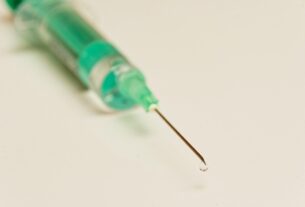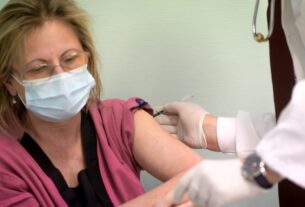Hungary would be “much worse off” and “significantly more people would die” had the government not purchased vaccines from the East, Gergely Gulyás, the prime minister’s cheif of staff, told a press conference.
The minister said that one percent of those inoculated with at least the first shot had contracted coronavirus but their symptoms were “significantly milder”. In the case of those fully inoculated, the figures were “even better”, he said. Even though full protection is only achieved after the second shot, already one dose significantly reduces the risk of infection, Gulyás said. This is the reason why vaccination certificates are being issued after the first jab, he said. The “rights” certificate holders will be entitled to exercise will be determined in the coming week and announced by Prime Minister Viktor Orbán, Gulyás said.
Regarding the Hungarian research into the vaccines accredited in the country, Gulyás said the results will be published at a later date. At the moment, Sputnik V seems to be the most effective of all, and “Sinopharm seems better than Pfizer”, he said. At the same time, all vaccines are extremely effective, he said. Vaccine producers currently guarantee six months of protection for those inoculated, Gulyás said. Therefore, it is possible that some will need booster shots in September, he said. Gulyás warned that “anti-vaccination campaigns shaking the trust in vaccines” may cost lives. The average age of those dying after contracting Covid remains above 70 in Hungary, while some 20% of the fatalities is suffered by 50-65-year-olds, he said. There is currently one child with Covid-19 on ventilator, he said. Regarding the reopening of borders for Hungarians with family members in neighbouring countries, Gulyás noted that the inoculation rate across the borders lags behind that of Hungary. One of first steps in reopening the borders, however, will be to allow people to see their families, he said. In the coming days, Orbán will announce steps for the next stage of reopening the country, scheduled for when the number of those vaccinated reaches 4 million, he said.
Meanwhile, regarding the Chinese Fudan University’s campus planned in Budapest’s 9th district, Gulyás said improving the quality of Hungarian higher education was in the entire country’s interest. Fudan has been cooperating with the Corvinus University for years, Gulyás noted. Hungary welcomes all top-50 universities, be they American, British or Chinese, Gulyás said. At the same time, he noted that the Central European University was banned from operating in Hungary because “it basically operated as a printing press for degrees, without a campus in its country of origin” and not because it was financier “George Soros’s university.” Regarding concerns in connection with the student housing project originally planned for the Fudan site, Gulyás said the government would honour all agreements with the Budapest municipality on the issue. The housing project will provide accommodation for at least as many students as originally planned, regardless of whether they are studying at Fudan or elsewhere, he said.
Regarding Hungary’s stance on the Russia-Ukraine conflict, Gulyás noted that Hungary and the Visegrad Group countries were among the first countries to express solidarity with Ukraine after Russia annexed the Crimean peninsula in 2014. Ties between Hungary and Ukraine have been strained, however, ever since the curbing of the Hungarian minority’s right to mother tongue education, he said. Hungary is thus the only EU member state to block Ukraine’s accession to NATO, he added. Answering a question on foundations handling the assets of public institutions — including universities — Gulyás said the reorganisation of universities was vital to ensure the country’s competitiveness while expanding “academic freedom” as the state would no longer have direct influence over their operation. The assets of these foundations can only be used for public purposes, and not as private fortunes, he said. On another subject, Gulyás said the government aimed to avoid cancelling summer youth camps, adding that a decision may be made in the second half of May in light of pandemic indicators.
hungarymatters.hu
pixabay


















